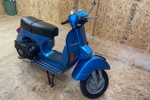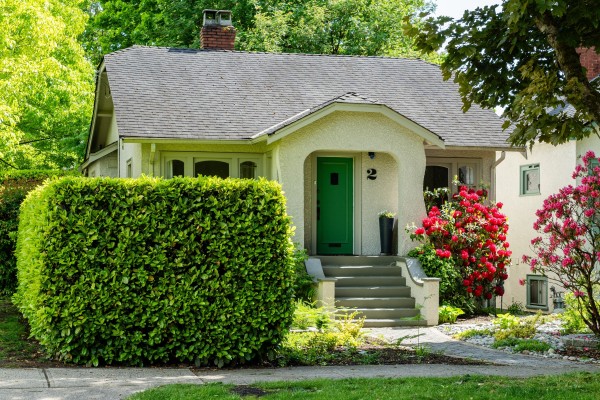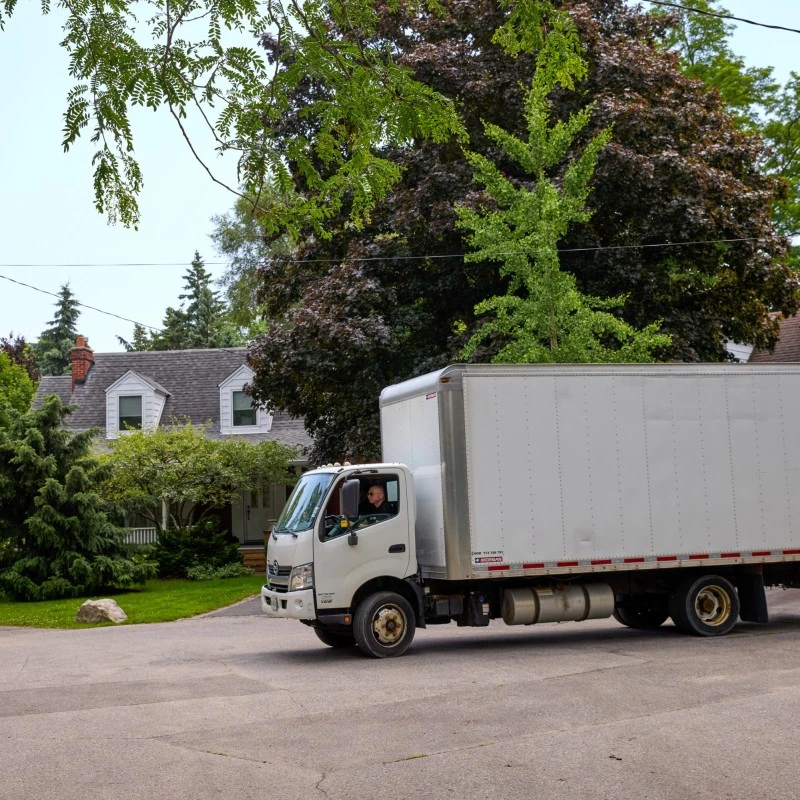How much do you need to earn to live comfortably in Vancouver? [2025]

![How much do you need to earn to live comfortably in Vancouver? [2025] How much do you need to earn to live comfortably in Vancouver? [2025]](https://cdn.topmove.ca/image/blog/6ef9ab103778bf29ee25b72ecb3d2598.jpeg)
Surrounded by snow-peaked mountains and lush, beautiful rainforests, "stunning" is an understatement for Vancouver. Usually, major cities are not synonymous with epic natural beauty. Vancouver is, however, known for being easy on the eyes and providing ample locations nearby for outdoor adventure.
This lively, multicultural city offers thriving film, tourism, and tech industries. Unlike almost everywhere else in Canada, temperatures rarely drop below zero. So, residents can enjoy the outdoors year-round. They have easy access to the famous Whistler ski resort for fun in the snow.
All this appeal comes with a hefty price tag. Vancouver is the third most expensive city in the world. It's thus essential to consider the costs of moving there. This is especially true if you want some comfort and security.
How much will I pay for rent in Vancouver?
The simple answer is, that you’ll most likely pay a lot. Most central Vancouver neighbourhoods have some of the highest rents in the country. But some outlying areas offer cheaper rent.
As of January 2025, the average monthly rent for an entire home in Vancouver is approximately CA$3,000. An apartment averages around CA$2,700 per month.
Some Vancouver neighbourhoods are among the world's most expensive places to live. These include:
-
Shaughnessy
-
West Point Grey
-
Kitsilano
-
Coal Harbour
-
Downtown Vancouver (West End & Yaletown)
-
Dunbar-Southlands
-
Kerrisdale
Some areas and nearby towns have a lower cost of living, including rent:
-
Surrey
-
New Westminster
-
Langley
-
Port Coquitlam
As of January 2025, a one-bedroom apartment in Surrey, BC, rents for about CA$1,902.
If you live with a partner or are open to having roommates, you can expect to pay between CA$950 and CA$1,500 in rent per month.
Average monthly rent: CA$1,200 (if in a shared rental)
What if I have a mortgage?
 As of January 2025, the average home prices in Vancouver and Surrey are as follows:
As of January 2025, the average home prices in Vancouver and Surrey are as follows:
- Vancouver: The average selling price of a single-family home is approximately CA$1,994,600.
- Surrey: The average house price is around CA$957,961.
If you are thriving financially and can afford a home in Vancouver, you can calculate your monthly mortgage based on the average home price: CA$1,994,600. For a CA$1,994,600 home, with a 20% down payment and a 6.49% interest rate over 30 years, the monthly mortgage would be about CA$9,998.
Over in Surrey and other more affordable surrounding areas, the average home price is CA$957,961. Using the same calculations, your monthly mortgage would be about CA$4,999.
Average monthly mortgage, split with a partner: CA$3,749
How much will I spend on food in Vancouver each month?
 On average, a single person in Vancouver will spend around CA$500 on groceries every month. Vancouver has a big health food scene. So, organic or speciality foods may cost more.
On average, a single person in Vancouver will spend around CA$500 on groceries every month. Vancouver has a big health food scene. So, organic or speciality foods may cost more.
A family of four can expect to spend around CA$1,260 monthly on groceries in Vancouver.
Monthly food costs for 1 person: CA$500
How much will my electricity and monthly bills be?
Vancouver has a mild, temperate climate. It rarely drops below freezing. You will use less power to warm your home in the winter compared to the rest of Canada away from B.C.’s coast.
A family of four can expect a monthly bill for utilities and internet between CA$300 and CA$500. This amount varies based on usage and service providers. The size of your home and the time of year will also affect these numbers.
Monthly bills per person: CA$200
What does it cost to get around in Vancouver?
 Vancouver is sprawling. Horseshoe Bay, on the west coast, is 75 km from Langley in the east. Traffic congestion can be a challenge, especially during rush hours.
Vancouver is sprawling. Horseshoe Bay, on the west coast, is 75 km from Langley in the east. Traffic congestion can be a challenge, especially during rush hours.
TransLink has a vast public transit system. It makes travel easy and cheap. The SkyTrain is a rapid transit network with three main lines: Expo, Millennium, and Canada.
Fares start at CA$3.20 for one zone, and monthly passes range from CA$116.75 to CA$181.05.
The SeaBus is a ferry. It connects downtown Vancouver to the North Shore. A bus network covers the entire city.
The West Coast Express is a commuter train linking Vancouver with the Fraser Valley.
The Compass Card system pays for public transit in Metro Vancouver. It’s a reusable, reloadable card used for buses, SkyTrain, SeaBus, and the West Coast Express. You can load the card with stored value or monthly passes and tap in and out at card readers in transit. You can top up Compass Cards at kiosks, online, or through the Compass app.
Some Vancouver residents cycle instead, especially on the beautiful Stanley Park Seawall bike route. There are car-sharing apps, and taxis or Uber. Electric scooter sharing is also available in certain neighbourhoods.
Average monthly transportation costs: CA$150
How much does it cost to eat out in Vancouver?
 The city’s multiculturalism influences Vancouver's diverse restaurant scene. Many restaurants promote sustainable food and local, Delta-sourced produce. Delta City, Vancouver's neighbour, is B.C.'s largest agricultural centre. In Vancouver, you'll also find food trucks, ethnic cuisines, cafes, and fine dining.
The city’s multiculturalism influences Vancouver's diverse restaurant scene. Many restaurants promote sustainable food and local, Delta-sourced produce. Delta City, Vancouver's neighbour, is B.C.'s largest agricultural centre. In Vancouver, you'll also find food trucks, ethnic cuisines, cafes, and fine dining.
Cheaper spots offer meals for CA$20-25. Mid-range dining is around CA$25-45 per plate. Fine dining establishments offer meals starting at CA$55, with pricier spots serving plates in the CA$200 range.
Monthly restaurant costs: CA$200–300
How much will I spend on entertainment while living in Vancouver?
 Vancouver’s entertainment options range from rootsy to refined. Artists flock to Vancouver, especially on the east side. The city is full of theatres, live music venues, and places to see independent and mainstream films.
Vancouver’s entertainment options range from rootsy to refined. Artists flock to Vancouver, especially on the east side. The city is full of theatres, live music venues, and places to see independent and mainstream films.
Nightlife lovers frequent the city's many bars, lounges, and clubs. Many famous music groups include Vancouver in their tours—the city has several large concert venues.
Outdoor enthusiasts adventure year-round by going on hikes, bike rides, skiing, and beach walking.
Sports are big in Vancouver, home to the Vancouver Canucks—the city’s well-loved national hockey team. Sports fans can choose from frequent major sporting events.
Monthly entertainment costs: CA$150–250
How much can I expect to spend on basics?
Basics include your rent or mortgage, groceries, transport, and some entertainment activities. This includes dates and restaurant meals. Monthly expenses in Vancouver can range from CA$3,600 to CA$4,500 per person. A small family could live off CA$8,000 per month if careful with spending.
Living in Vancouver as an individual would cost about CA$48,000 per year. This is more than CA$10,000 higher than the annual salary of someone earning minimum wage in B.C.
Note, that this figure is before taxes, RRSP, and CPP. It excludes savings, vacations, and unexpected costs like car repairs or appliance replacements. On average, Canadians spend about CA$4,000 per year on their vehicles.
If CA$48,000 covers the basics, how much do I need to earn to live comfortably?

To live comfortably and securely in Vancouver as a single person, you'll need to earn an annual income of approximately CA$70,000.
With this income, you could get a place in the more upscale areas of the city. You would be able to afford vacations and create savings as well. With this income, you could achieve a balance between work and play.
A $70k annual income would let you spend on self-care. This includes bodywork, therapy, health treatments, and memberships. Entertainment costs could include bigger concerts, festivals, and sporting events.
For a family of four, you'll need a combined income of CA$150,000 to allow for a comfortable lifestyle in Vancouver.
What do our customers say?






![The Cost of Living in Canada [2025] The Cost of Living in Canada [2025]](https://cdn.topmove.ca/image/blog/fd5e6f8de7a01a874376620f785ffdba.jpeg)
![How much do you need to earn to live comfortably in Victoria? [2025] How much do you need to earn to live comfortably in Victoria? [2025]](https://cdn.topmove.ca/image/blog/f0bdeb7f43a3340afba84793c4fddbac.jpeg)
![How much do you need to earn to live comfortably in Toronto? [2025] How much do you need to earn to live comfortably in Toronto? [2025]](https://cdn.topmove.ca/image/blog/de7b110360e9510bfcb89724b7ef9af4.jpeg)
![How much do you need to earn to live comfortably in Montreal? [2025] How much do you need to earn to live comfortably in Montreal? [2025]](https://cdn.topmove.ca/image/blog/80e0ee82a5a92d9451b96ff875513ee4.jpeg)
![How much do you need to earn to live comfortably in Calgary? [2025] How much do you need to earn to live comfortably in Calgary? [2025]](https://cdn.topmove.ca/image/blog/46fef724030602a02f51110ffb3ac569.jpeg)
![How much do you need to earn to live comfortably in Winnipeg? [2025] How much do you need to earn to live comfortably in Winnipeg? [2025]](https://cdn.topmove.ca/image/blog/d52ddc1f425f60fd553dcc00f7eb0fb5.jpeg)

![The Cost of Living in Toronto [2025] The Cost of Living in Toronto [2025]](https://cdn.topmove.ca/image/blog/ded0549bf885e2463f6b3516d9f8f021.jpeg)
![The Cost of Living in Montreal [2025] The Cost of Living in Montreal [2025]](https://cdn.topmove.ca/image/blog/3d9ba911fae51ef6bf042019500f2c4b.jpeg)
![The Cost of Living in Calgary [2025] The Cost of Living in Calgary [2025]](https://cdn.topmove.ca/image/blog/44a5bcb6ebf6c658f5c5fe30ab7077c9.jpeg)
![The Cost of Living in Winnipeg [2025] The Cost of Living in Winnipeg [2025]](https://cdn.topmove.ca/image/blog/8874f5688baa4a1291d7eae6c507f8aa.jpeg)
![The Cost of Living in Edmonton [2025] The Cost of Living in Edmonton [2025]](https://cdn.topmove.ca/image/blog/85d8f0085c5276a3f3add5828109b82a.jpeg)
![The Cost of Living in Victoria [2025] The Cost of Living in Victoria [2025]](https://cdn.topmove.ca/image/blog/012c60baf3a9dd52b2112857fe508e4c.jpeg)








